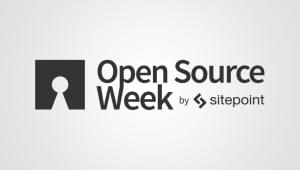We have talked many times before on Open Sourcery about the pros and cons of the commercialization of Linux. This has included building a service and support system similar to open source’s proprietary cousins (that the business world is used to), introducing benchmark ratings (already a growing movement) and methods for validating code to protect against both legitimate and rancorous legal action.
Obviously this is something of a movement during the last few years and now several intiatives are coming to fruition for better or for worse. In general, paid support has been available through several manufacturers of Linux distributions, however, more and more start-up companies are surfacing based on a pay to play model with success.
In fact, leading the new factoids in today’s post is the emergence of a venture capital fund dedicated solely to launching six or more open source companies over the next few years. Seeing an operation commit more than $10 million to mentoring new open source products into commercial organizations is a big boost to budding entrepeneurs working with non-proprietary projects.
This certainly should encourage those with projects to go beyond sharing projects at community sites and perhaps teasing the waters to see if some commercial investments are ripe for funding.
In that same vein, Black Duck (a company I have covered here before) has teamed up with the Open Source Software Institute as a corporate member. This will bring the firm’s code compliance and licensing expertise to the orgainzation and its members.
They will also serve as a technical advisor on US Navy research and development projects. Again, a significant move for open source and the Linux platform, further vetting the platform’s capability in complex environments.
Why discuss large scale enterprise issues in conjunction thinking of web application developers? Well, for starters, all of us here at SitePoint work at differing levels of development, some small and some large. Second, the more proven Linux and open source solutions become at the highest level, the more legitimate proposal for web solutions become at all levels. Think small business and their view of buying Microsoft solutions. Most think nothing other than that it (Microsoft) is the watermark standard for technology. Nothing wrong with that – it is a big market with room for everyone. However. many of us in some form or fashion are hawking Linux and open source – and these bits of news add more ammunition for us to show the platform is mature and ready.
And as I discovered as I continued to move to larger and larger projects and environments, you might be surprised at how soon you may be looking to some of the companies we discuss for a solution. As compliance issues become critical even at the smallest company, our need for code integrity, licensing help and protection against possible legal action becomes very real.
Linux has shown it can succeed with a community model. Now it will need to retain that community as it establishes itself as a major player.







